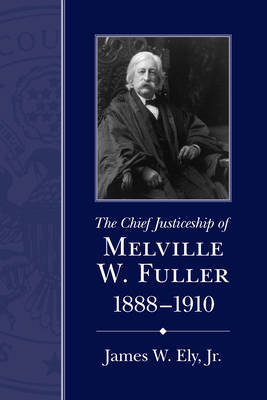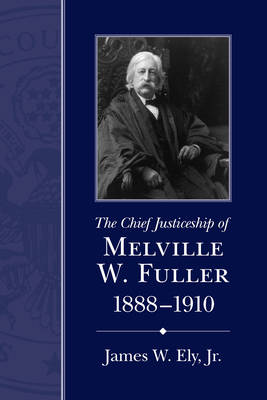
Bedankt voor het vertrouwen het afgelopen jaar! Om jou te bedanken bieden we GRATIS verzending (in België) aan op alles gedurende de hele maand januari.
- Afhalen na 1 uur in een winkel met voorraad
- In januari gratis thuislevering in België
- Ruim aanbod met 7 miljoen producten
Bedankt voor het vertrouwen het afgelopen jaar! Om jou te bedanken bieden we GRATIS verzending (in België) aan op alles gedurende de hele maand januari.
- Afhalen na 1 uur in een winkel met voorraad
- In januari gratis thuislevering in België
- Ruim aanbod met 7 miljoen producten
Zoeken
Omschrijving
In this comprehensive interpretation of the Supreme Court during the pivotal tenure of Melville W. Fuller, James W. Ely Jr., provides a judicial biography of the man who led the Court from 1888 until 1910 as well as a comprehensive and thoughtful analysis of the jurisprudence dispensed under his leadership. Highlighting Fuller's skills as a judicial administrator, Ely argues that a commitment to economic liberty, the security of private property, limited government, and states' rights guided Fuller and his colleagues in their treatment of constitutional issues. Ely directly challenges the conventional idea that the Fuller Court adopted laissez-faire principles in order to serve the needs of business. Rather Ely presents the Supreme Court's efforts to safeguard economic rights not as a single-minded devotion to corporate interests but as a fulfillment of the property-conscious values that shaped the constitution-making process in 1787. The resulting study illuminates a range of related legal issues, including the Supreme Court's handling of race relations, criminal justice, governmental authority, and private law disputes.
Specificaties
Betrokkenen
- Auteur(s):
- Uitgeverij:
Inhoud
- Aantal bladzijden:
- 272
- Taal:
- Engels
- Reeks:
Eigenschappen
- Productcode (EAN):
- 9781611171280
- Verschijningsdatum:
- 15/09/2012
- Uitvoering:
- Paperback
- Formaat:
- Trade paperback (VS)
- Afmetingen:
- 152 mm x 229 mm
- Gewicht:
- 403 g

Alleen bij Standaard Boekhandel
+ 61 punten op je klantenkaart van Standaard Boekhandel
Beoordelingen
We publiceren alleen reviews die voldoen aan de voorwaarden voor reviews. Bekijk onze voorwaarden voor reviews.









